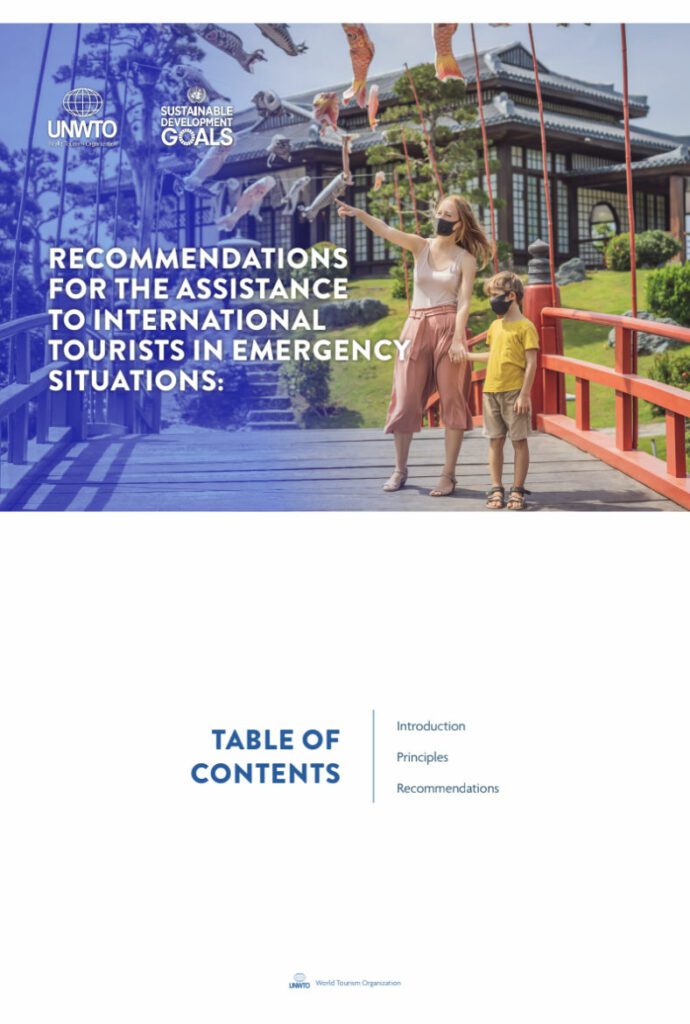The closure of borders with little or no notice during the COVID-19 crisis left millions of tourists stranded abroad for periods which in some instances surpassed a month. This situation, combined with the confusion surrounding the attribution of responsibilities to assist tourists in situations of force majeure, left international tourists in a situation of neglect, aggravated by their vulnerability. International tourists, away from their homes, and out of their ‘comfort zones’, were faced with dealing with the pandemic and the confinement with little knowledge of the language, culture or laws of the country that they were stranded in.
The unprecedented situation created by the COVID-19 pandemic is not the only recent disruptive situation in which the lack of an international framework regarding the assistance to tourists in emergency situations has created confusion and a loss of the necessary confidence to travel abroad. These emergency situations, such as the one created by the COVID-19 pandemic, are unforeseeable, unavoidable and due to external events beyond the control of the parties, which may lead to the impossibility of the performance of the contract by the tourism service provider.
Pursuant to the programmatic priority for 2020-2021 to facilitate safe, secure and seamless travel, the Secretariat has prepared a set of recommendations based upon Article 6 of the “UNWTO Global Code of Ethics for Tourism” and Article 9 of the “UNWTO Framework Convention in Tourism Ethics”, as well as on the draft “UNWTO Convention on the Protection of Tourists and on the Rights and Obligations of Tourism Service Providers”, especially its Annex I (“Assistance in emergency situations”). They are addressed to Member States and are intended to support governments and the private sector in their efforts for international tourism recovery in the framework of the COVID-19 pandemic, while guaranteeing an appropriate degree of protection of international tourists in the event of an emergency situation caused by such unavoidable and extraordinary circumstances. However, they are neither exhaustive nor are they intended to be definitive. They will be subject to review and approval by UNWTO Governing Bodies.
